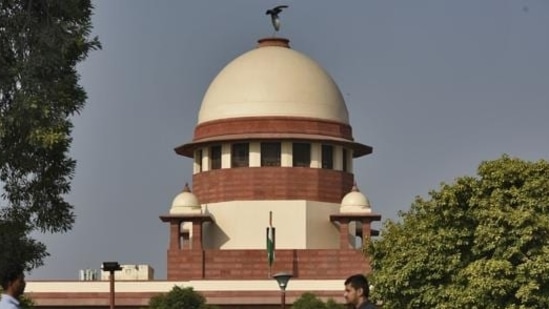
“India is known for its inclusiveness,” observed the Supreme Court on Thursday as it allowed overseas citizens of India (OCI) to be considered for admissions to all open category undergraduate medical seats for the academic year 2021-22, on a par with Indian citizens.

“When you (government) can bring non-citizens from neighbouring countries to India and make them citizens, except for one community, these (OCIs) are very much Indians. India is known for its inclusiveness. Look at what your CAA (Citizenship Amendment Act) does. It makes even non-citizens as citizens of this country,” a bench of justices SA Nazeer and Krishna Murari told additional solicitor general Aishwarya Bhati.
Bhati, appearing for the Centre, sought to defend the government’s March 4 notification, issued by the ministry of home affairs, that put OCIs on a par with NRIs (non-resident Indians) with regard to all-India entrance examinations such as National Eligibility cum Entrance Test (NEET), Joint Entrance Examination (JEE), etc. It ensured that OCIs would compete with NRIs for the limited number of seats in technical and medical education, paying the same amount of fee as NRIs.
Several OCI students challenged this notification on the ground of arbitrariness. They alleged it is also discriminatory because like other Indian students, many OCI students have had several years of schooling in India and their families also work in India.
OCI cardholders are allowed to live and work in India for any length of time. Over the years, many OCIs have returned to India with their children, but have not applied for Indian citizenship or relinquished their foreign citizenship.
The petitioners, through senior advocates Vikas Singh, Anitha Shenoy and Devadatt Kamat, added that they could not afford the exorbitant admission fees that accompany seats for NRIs whose families are living and working in the global west and have more access to financial resources.
Bhati, however, argued that OCIs should not be given any extraordinary consideration since they have voluntarily chosen to give up Indian citizenship and switched allegiance to some other nation, unlike the NRIs who continue being Indian citizens.
The bench, however, retorted that the OCIs, too, are of Indian origin.
“They all have Indian origin. they are not outsiders. They have sent dollars for our country too. But many of them don’t have money like the NRIs. they had a legitimate expectation but suddenly you withdrew that benefit. Such a notification can be declared prima facie arbitrary if not illegal,” the court told Bhati.
It pointed out that the main plank of contention was the timing of the notification since the government abruptly withdrew the benefits available to the OCIs in the middle of the examination process. “When they are getting ready for their counselling, you ask them to deposit the fees applicable to the NRIs. You withdrew the benefits suddenly in the middle of the process. What else could be more arbitrary?” the bench asked the ASG.
Justice Nazeer, who comes from Karnataka, referred to the situation in his home state. “In the NRI quota, you have hardly 10% seats. How can these people compete in that quota? There is virtual auctioning for those seats. In Karnataka, there is a syndicate. Education mafia they call it. Seats are auctioned. It is an unthinkable situation there,” remarked the judge.
To this, Bhati submitted that there are millions of aspiring Indian students who are toiling to get these seats and it would perhaps be unfair to them if OCIs are allowed to compete for the same seats without any guarantee that they will serve in India.
“It is not about entitlement but economics. They don’t want to pay higher fees. That’s all. Even otherwise, the government has the sovereign power to frame its policies regarding foreigners,” she added.
The court, however, retorted that the competition was there in all the previous years as well and that the new condition on fees has virtually taken away their right. “How can you expect them to arrange for such a huge amount overnight? By putting this condition, you have virtually snatched their right,” it said.
Issuing an interim order in favour of the OCI students, the bench said that the petitioners will be considered eligible to all the medical seats where OCIs were eligible before the March 4 notification and that the National Testing Agency will declare the results of NEET(UG) -2021 accordingly. Eligible petitioners are permitted for counselling in the general category, directed the bench while adding that the interim order is confined to the academic year 2021-22.
When ASG Bhati requested the bench to add a condition in its order that such OCI students should apply for citizenship in India, the bench said that it is rather for the Union government to make such changes in its notification.